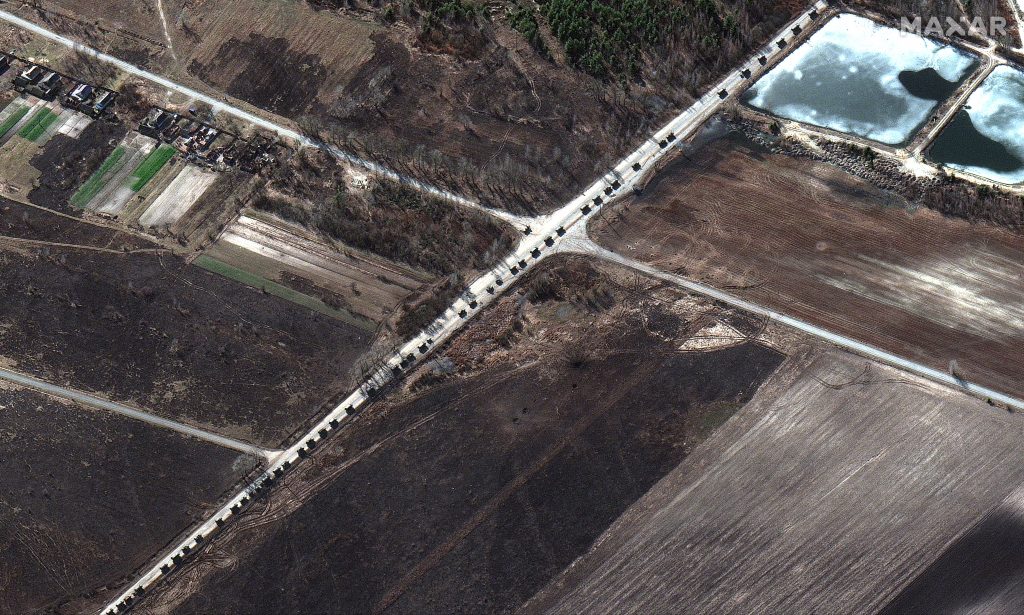Here we go again.
Exactly 7 years, 11 months and 10 days after Russia invaded Ukraine, using masked and unmarked Russian troops to invade and annex Crimea, we are once again watching the same thing happen.
While significant efforts were made to find a peaceful, diplomatic solution to the ongoing crisis before it became hot, we still find ourselves facing war in Europe. Despite the efforts of French President Emmanuel Macron, who has solidified his position as Angela Merkel’s successor to the role of de-facto diplomatic leader of the European Union, who put his political fortunes at risk during an election year in the attempts to negotiate a ceasefire and to find a solution to the situation, it seems that Putin’s goal was always to push us to the brink.
With Putin having now done what we all hoped he would not and begun what is likely to be the progressive annexation of Ukrainian territory, unlikely to just be limited to the eastern regions currently controlled and claimed by pro-Russian separatists, it’s tempting to sit and watch this happen. To ruminate endlessly about what could have been, and to think about what we could have done without properly reflecting on what went wrong.
But this is not how we overcome our failures.
Could We Not Stop It?
With the only responses that were discussed being sanctions and a removal from the SWIFT banking system, and the very obvious lack of interest or fear that Putin showed in the face of these threats, the European Union and NATO are once again left scratching their heads about what to do.
The reality is that Putin clearly doesn’t care about the threat of sanctions targeting him, his colleagues in the Russian Duma, or his country. Russia, as Jim Cramer from CNBC’s ‘Mad Money’ outlined recently, has “huge reserves and can shrug off any financial connection to the US”, and while exclusion from the SWIFT banking system could be damaging, it is clearly not much of a deterrent.
Our reliance on sanctions and diplomacy with no genuine military backing behind our talk, and our lack of concrete will to deploy hard-power in times of crisis is crippling our ability to impose ourselves in a rapidly shifting geopolitical environment, and this cannot continue. The European Union, and by extension, the US and NATO, need to become more decisive across the board, and while defensive sanctions do have a role to play, they are clearly unable to deter aggression or protecting our friends, our allies, our neighborhood, or us, for that matter, in a way that having an effective military force would.
King's College London’s Russia Institute director, Sam Green, highlighted that Putin’s donbas address as a “laying [of] the groundwork for the wholesale occupation of Ukraine”, and this shows the cost of our weakness; and if we’re ever going to be taken seriously, things urgently need to change.
The Solution
Following the clear inability of western actors to effectively and decisively deal with crises such as the annexation of Crimea, the Syrian civil war, something very clearly needs to change or we’re going to find ourselves at the wrong end of the geopolitical stick.
However, while it’s clear that the European and western geopolitical playbook is a geopolitical failure, all is not lost, and the solution has already been laid out in front of us.
We need to redevelop the European Foreign Policy playbook, and it needs to be far more robust. It must include a more imposing use of pre-emptive sanctions alongside our existing use of defensive sanction, combined with the clear understanding that the use of hard, military power is necessary to protect ourselves and our allies. We need to combine this with an effective, pre-emptive, cyberpowers toolbox that will enable us to target the key infrastructures that are necessary for dictators such as Putin to launch the invasions that he has now launched on Ukraine.
But not only this, we need to do some soul searching.
Our political leaders need to accept that, while it’s not popular politically with segments of the population, while it may come with political costs, and while it may be uncomfortable for some states to engage in military action, that we cannot afford to stand by while innocent people's lives are torn apart. We cannot afford to stand by while humanitarian crises unfold. We cannot afford to watch authoritarian, illiberal, and regressive regimes take apart the states around us.
This is why we need to collectively work to lose our fear of engaging militarily, and there’s a very interesting exercise that we can perform to understand exactly why we need to do this; to understand exactly why we have a responsibility to undertake this reform of our capabilities.
Ask yourself how you would feel if your country was without military assistance or alliances as a state with a military four-or-more times the size of yours decided that it had had enough of your existence.
Ask yourself how you would feel if your so-called friends offered nothing more than sanctions, which you were aware would have a very-limited effect and would not prevent a part of you from being torn away, or prevent soldiers from invading and occupying your home.
Ask yourself how you would feel if you had to live every day with the fear that an invasion was coming, that you would have to pick up your rifle to protect your family, friends, and country no reason other than the fact that you were born in a country like Ukraine.
This is how Ukrainians feel as they deal with and suffer Russia’s aggressive invasion.
The sad reality is that we have normalized our own geopolitical failures. We’ve normalized our incapacity to act. We’ve normalized our geopolitical sclerosis, which we hide behind political statements highlighting just how much we do and how helpful we are.
We’ve normalized abandoning our allies, but that doesn’t mean we have to keep doing it.


